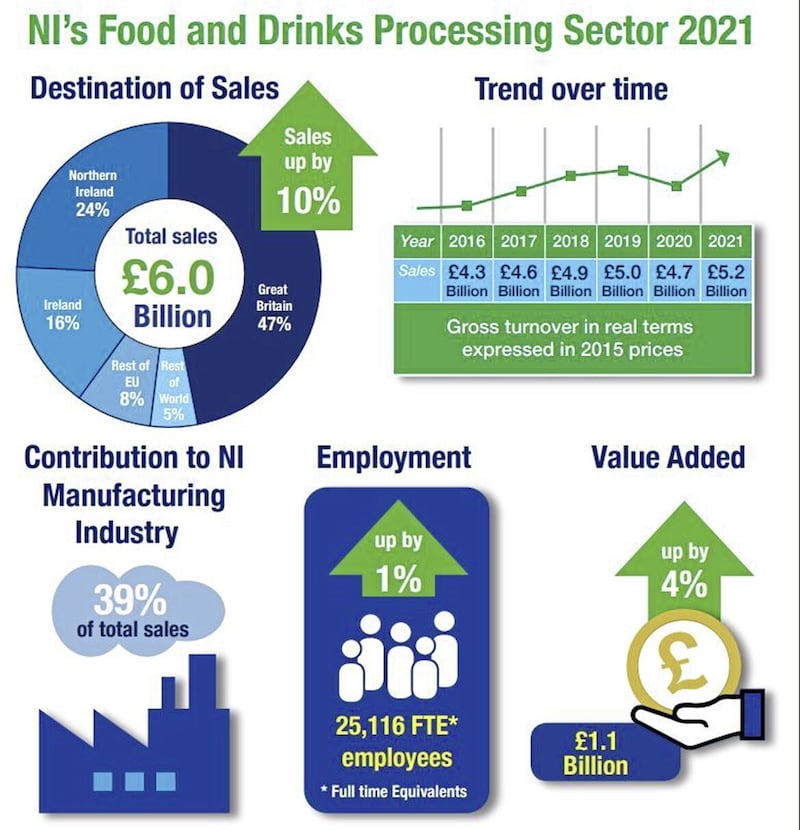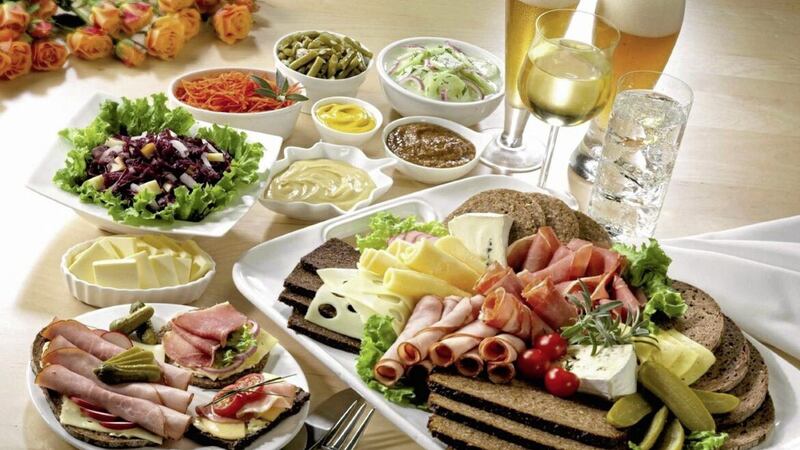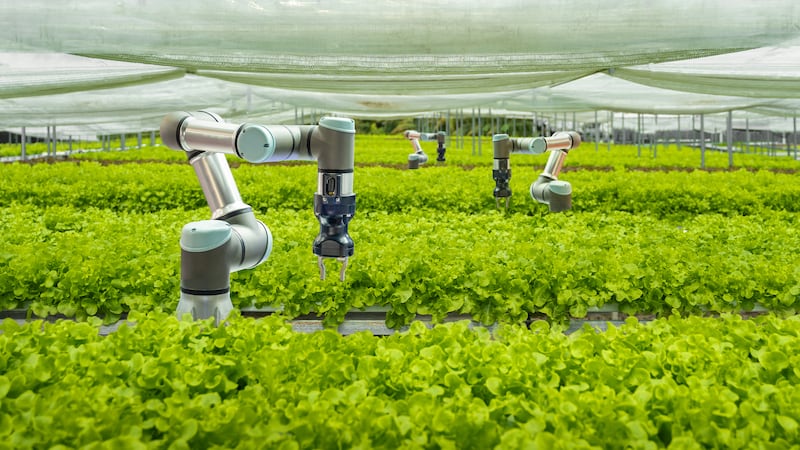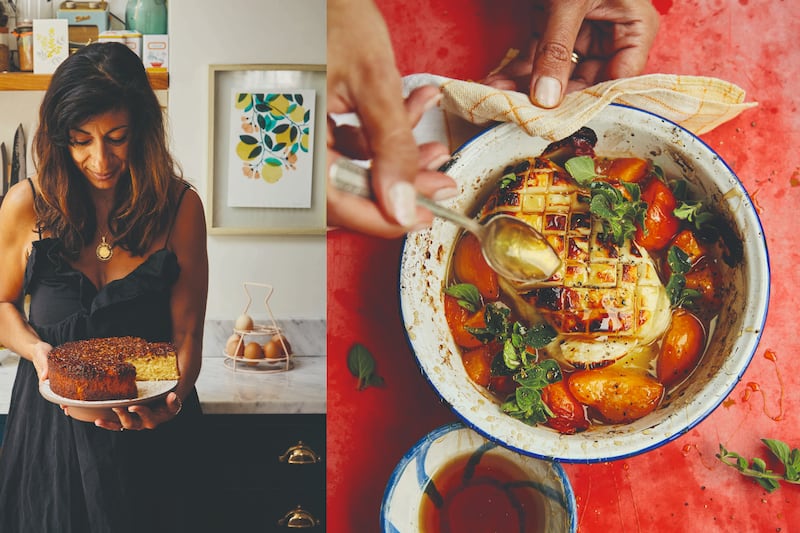THE value of the food and drink sector to the north's economy has risen to nearly £6 billion, new data shows.
The sector also employs more than 25,000 full-time equivalents, according to the latest report from the Department of Agriculture, Environment and Rural Affairs (Daera).
And while the data on the values of sales, value-added, number of employees and destination of sales across 10 sub-sectors in food and drinks processing covers the period 2020 to 2021, Daera estimates that sales for 2022 are mostly up as well.
Food and drink continues to be a key driver for growth in Northern Ireland, remaining the region's largest manufacturing sector, accounting for more than 30 per cent of total manufacturing employment (although this fell slightly over the period from 30.3 per cent to 30.1 per cent).
Michael Bell, executive director at industry body NI Food and Drink Association (NIFDA), welcomed the figures but said there was “some cause for concern” given that the cost of doing business has increased, hampering profitability.
“The sector has had to deal with three major challenges of Covid, the end of the Brexit transition period, and hyperinflation in feed, fuel and fertiliser prices,” he said.
“Our members have shown impressive resilience in dealing with each of these major challenges, but the industry here is missing several ingredients from the recipe for success.
“Unlike all our neighbouring regions, we lack support from government in the areas of export marketing, investment in young people through the apprenticeship levy, and capital investment.
“So we need targeted investment in food and drink processing to enhance sustainability, encourage further innovation, make efficiencies to limit the impact of inflation, and modernise the industry so it continues to be seen as an employer of choice by the young people who will be future leaders.”
Mr Bell said the industry wants to work with the Department of the Economy to help deliver its 10x strategy.

“But to embrace the benefits of advanced manufacturing, new technologies and innovation, we need investment,” he added.
The report’s key findings include:
- Total gross turnover of the Northern Ireland food and drinks processing sector is up 9.5 per cent to £5,950 million and is projected to rise another 8 per cent in 2022 to £6,427 million.
- The sector’s sales increased to all broad markets, with NI (up £180.3m) and Britain (up £162m) seeing the largest increases.
- Britain remains the sector’s largest market, accounting for 47.4 per cent of food and drink sales in 2021.
- The sector contributed 38.5 per cent to total manufacturing sales in 2021.
- The estimated number of direct full-time employee equivalents rose in the sector rose 0.6 per cent in 2021 to 25,116, with provisional estimates seeing that increase to 25,497.
- The value added by the sector increased by 4.2 per cent to £1,096 million between 2020 and 2021, driven by wages (up £50m).
- Total purchases by the sector increased by 12.3 per cent in 2021 to £4,678 million, led by big rises in Northern Ireland (up £304.1m) and Britain (up £131.7m).








